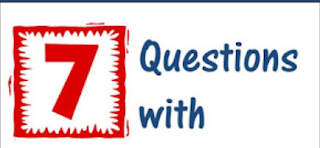Graham Parker is a professional voice-over artist Contact him if you have need a voice.)and lifelong historical enthusiast. He holds a Bachelor’s in History from Georgia State University, summa cum laude.
An eagle scout, outdoorsman, and traditionalist at heart, Graham’s work on Grisly History continues an earnest pursuit of the truths we can all learn from the past. Grisly History is a long-form history podcast, with new episodes each month. Listen wherever you listen to podcasts. The website is https://www.grislyhistory.com/ .
1. How and when did you get hooked on history?
My interest in history began when I was six years old and my father introduced me to the game of Risk. He told me that he would not let me beat him and that if I wanted to win I was going to have to learn the game. Winning that game became a big goal for me and we played often. As we played he would tell me about the different lands we fought over and about the people who had lived there throughout history which further added to my fascination with the game. It took two years before I finally won my first game, but even so I would find myself looking at globes and maps remembering what my father had told me and wanting to know more.
2. What role does history play or has it played in your personal life?
Learning history and learning about the way in which histories are compiled have had a lot to do with changing my outlook on the world. When I was young my understanding of the world and how it works was often filtered through the views of my parents and family so their understanding of the world became my understanding of the world. As I got older and devoured biographies and textbooks I began to understand that things are much more complicated than I had originally believed. As such I’ve grown more inquisitive and information oriented when reading the news or exploring a new concept.
3. How does history play a part of your professional life/career?
I became a history major in college thinking that I might like to teach it before eventually deciding against it. Instead I used the skills that I had learned through researching and writing in administrative roles. Grisly History is the first time that I have really been able to put those skills into practice doing something that I love. I think that the podcast is as much an excuse for me to learn as it is to share stories with our audience.
4. Why is studying/knowing history important?
In a broad sense learning history is crucial to understanding how we got to where we are today. Throughout time there are triumphs and tragedies, successes and failures that can teach us not only about the world today but also inform us about the world that we would like to see. However if you want to go a step further I think understanding historiography, or the study of historical writings, is just as important. Understanding what information historians have chosen to highlight or omit can give one a better understanding of why we think about history the way we do.
5. What is your favorite period or aspect of history to learn about and why?
I love reading about the 19th century, particularly in regards to America and Europe. I find the formation of industrial technology, nation building, and colonization of that era incredibly fascinating, especially considering how all of that set up the grand conflicts and societal movements that came in the 20th century.
6. How did the podcast Grisly History come about?
The podcast came from a desire to make history more relatable to people who weren’t fond of it in school. Often when speaking to people who didn’t like history class they often say something to the effect of, “It was just memorizing names and dates, I don’t get what the big deal is.” If that is what history class was like for them then I get it, there is no point in memorizing names and dates if you don't understand the bigger story that they are a part of. I want people to be able to connect with history so Michael and I are trying to create a podcast that's immersive. We try to create a sense of dread or urgency when building the narrative and use second person pov portions to drop the listener into the story, and remind them that these things happened to people just as real as you or I.
7. What do you hope your podcast listeners take away from listening?
This is a podcast for people who want to explore darker parts of history and see why those stories are still worth discussing today. It is easy to think of the people we learn about in history as one note characters, heroes or villains in a story as we strive to attach meaning to their actions. But the truth is that they were human beings with their own lives, convictions, and desires. I hope that listeners will see the humanity of the people we discuss and come away with a better appreciation of their motives and struggles.




No comments:
Post a Comment